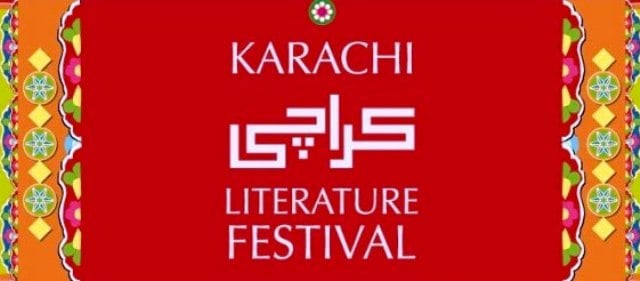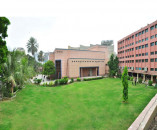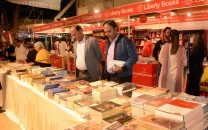A joke a day can keep Karachi’s trauma at bay
Comedians, artists discuss political, therapeutic roots of satire

A world without comedy would leave one riddled with despair. As the 12th Karachi Literature Festival drew to a close on Sunday, panelists at a session titled, ‘Karachi: Laughter in Chaos’ discussed the therapeutic roots of comedy and its power to question the status quo. In Karachi, it is a deeply resilient act that helps on cope the traumas the neglected metropolis inflicts on its residents.
The session, moderated by journalist George Fulton, opened with an ended question on the nature of comedy and its power to heal. On the panel were rapper and actor Ali Gul Pir, theatre producer and veteran actor Khaled Anam and comedian Shehzad Ghias Shaikh.
Responding to Fulton’s question, Anam remarked that for him, comedy was the ultimate coping mechanism. One needs to be able to laugh at one’s own pain and suffering, he said.
With regards to the comedy scene evolving in the metropolis, Anam opined that the younger generation of comics was more satirical and indirect as compared to the blunt comedy that was popular in his time.
The older generation needs to pave the way for new comics, he noted.
Moving the conversation forward, Pir reflected on the current times - marred by violence and censorship and the need for direct commentary through art.
Initially, we had to be subtle in our work but over time, people have become desensitised to the miseries of our society, he said. We need to be more blunt, he added, concurring with Anam.
On taking a safer - or the indirect route - in comedy, Ghias discussed the factor of social media, something older comics might not have dealt with. Comics are often safe, because we know our words will remain on the internet forever, he said.
Also read: A sombre KLF opens in 2021 amid Covid, Moin’s death
As the session progressed, the comedians reflected on how Karachi’s humour differs from the rest of the country.
The humour that emerges in the metropolis is deeply connected to the pains and sufferings of the people, said Pir. It often comes off as strong, but it is merely a reflection of our past traumas, he remarked.
Similarly, Ghias elaborated on the power of comedy to reduce the impact of traumatic moments. He referred to jokes based on crimes and muggings in the city and noted that thousands of Karachiites have been killed in snatching incidents over the years but one could easily find a punch line in these incident.
Reminiscing on the days of his youth, Anam described Karachi as a melting pot of cultures and languages. The differences are embedded along political lines and it is the ability of Karachiites to laugh at themselves that gives the city its resilience, he said.
Amid laughs and banter, the panel did not shy away from the problematic aspects of the local comedy scene. Issues such as stereotyping people, sexism and humour based on personal preferences were discussed and acknowledged by the speakers.
When Fulton posed a question with regards to offensive comedy, Gias said that the road to self-realisation took time.
He conceded that he had plenty of ethnic jokes in his sets at the beginning of his career and it was over time that he understood the subtle ways in which comedy could reinforce stereotypes.
The panel, in its final segment, raised the point of comedy being anti-status quo and anti-elite. To which, all three comedians, young and old, agreed upon the need for censorship to end and for artists to be permitted to comment on society through their work.
The session ended with Ghias calling for humour that punches up and comments on bad governance rather than the idiosyncrasies and mannerisms of those in power.
Published in The Express Tribune, March 29th, 2021.



















COMMENTS
Comments are moderated and generally will be posted if they are on-topic and not abusive.
For more information, please see our Comments FAQ